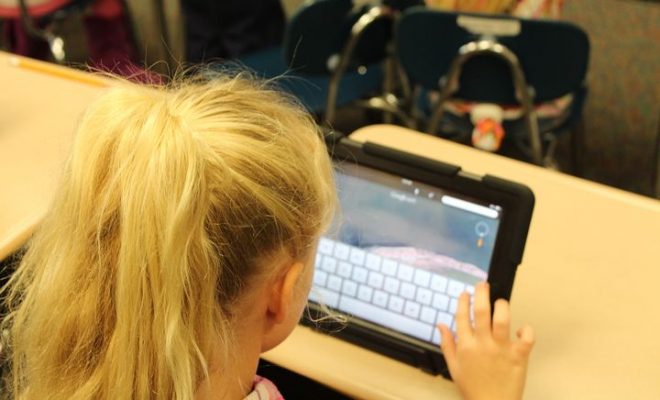What cyber charter schools are and why their growth should worry us

Bryan Mann, Pennsylvania State University and David Baker, Pennsylvania State University
What President-elect Donald Trump and the Republican sweep of government will mean for K-12 education priorities over the next four years is not entirely clear yet. However, policy statements and administration selections so far indicate “school choice” will top the agenda.
Betsy DeVos, Trump’s nominee for education secretary, has been known to be an advocate of school choice initiatives: DeVos has supported voucher programs that allow families to use taxpayer money to enroll in private and religious schools. She also promoted charter school legislation that offers students choices outside of traditional public schools.
Vice President-elect Mike Pence too has a history as governor of Indiana of promoting school choice policy. Indiana not only is ranked as having the most favorable policy provisions for charter schools by a prominent charter schooling advocacy group, but it is among the 25 states employing a type of charter school unfamiliar to many folks across the United States: the cyber charter school.
Unlike the usual charter school, the cyber version is typically delivered to students online wherever they may live, so long as they are residents of the state in which the cyber charter school operates. Cyber charter schools have been growing in states that have school choice policy.
Our research, along with a body of academic work, suggests that the public should be concerned about an expansion of the cyber charter schooling model.
Here’s why.
What is a cyber charter school?
Charter schools are privately managed K-12 schools that utilize public money. The funds for charter schools are removed from regular public schooling budgets and paid to various private firms and organizations (and sometimes other parts of a state’s education system) to provide a wider choice of schools.
In the cyber version of the charter school, instruction is typically delivered to the students online wherever they may live, so long as they are residents of the state in which the cyber charter school operates. The model of these schools could vary – some use a hybrid delivery model (online and in person), although most are entirely online. Students receive course material, lessons and tests on their computer at home (usually the computer is also provided with state funds).
As with traditional charter schools, the general idea behind cyber charter schools is to allow families and students to have a choice other than their local public school.
A 2015 annual report prepared by a consulting group that tracks online school practice and is often cited by scholars to describe cyber charter school enrollment shows that in 2014-2015 there were 275,000 students in cyber charter schools across 25 states. In some states, tens of thousands of students enroll in cyber charter schools. In Pennsylvania, for example, more than 36,000 students enrolled in cyber charter schools during 2014-2015.
Where do the students come from?
One of the goals of recent scholarship has been to understand who are the students who enroll in these schools and why do they do so.
The National Education Policy Center (NEPC) conducts an analysis of cyber charter school students every year. The most recent report shows that in 2013-2014, cyber charter schools, compared to the national average, had higher percentages of white students and lower percentages of free and reduced lunch students.
However, since these numbers are nationally aggregated and not every state has a cyber charter school, we believe comparing national cyber charter school averages to all students nationally may be problematic. Our research at Penn State on cyber charter schools has examined enrollments within Pennsylvania and shows that the picture is more complicated.
In our study of enrollments in Pennsylvania, we found that the majority of students in cyber charter schools are indeed white, but they match the racial demographics of the state. Similar results have been seen in Ohio.
Furthermore, in a another study in Pennsylvania we found that it was the economically disadvantaged students who were more likely to enroll in a cyber charter school.
An obvious question to ask is whether parents would have homeschooled their children had the cyber charter school option not existed. The best estimate comes from an internal report of one of the largest national providers of cyber charter schools: The report found that a small percent – 13.6 percent of cyber school students in those schools – were previously homeschooled.
So, what motivates a majority of parents to enroll their children in these schools?
Penn State researchers who interviewed parents who enrolled their children into cyber charter schools found that parents thought these schools were better customized to their children’s needs, carried little financial risk and were possibly the last hope for their child to succeed in school.
Concerns about cyber charters
Despite the hope that many parents hold out for this new educational option, the performance of cyber charter schools has consistently, and often drastically, lagged behind the performance of their brick-and-mortar school counterparts.
Research about cyber charter school performance outcomes paints a dismal picture linked to test-based outcomes. For example, a recent report from the Center for Research on Education Outcomes (CREDO), a policy analysis center based in Stanford University, used a technique to match cyber students to an academic and demographic “twin.”

Wesley Fryer, CC BY
They did this matching twice, once to compare individual gains of cyber charter students to their statistical twin in brick-and-mortar charter schools and once to compare them to their statistical twin in a brick-and-mortar district school.
Across all racial and poverty status groups of students in the study, the majority of cyber charter school students showed poor learning growth when compared to their matched twin. This was true in both math and reading when students were compared to charter and traditional students.
Researchers found these trends across almost all states that they studied: They found lower learning growth in reading in 14 out of the 17 states, and 17 out of 17 states in math. In their report they noted that improved academic outcomes for a student in a cyber charter school was “the exception rather than the rule.”
This research is consistent with others that examine the academic outcomes of cyber charter schools. Studies have looked at cyber charter school outcomes in Pennsylvania and in Ohio. These studies provide similar results about extremely lower learning growth in cyber charter schools in these state contexts when compared to other schools.
What is of further concern as one legal scholar, Susan DeJarnatt, has shown is that cyber charter schools may not have all the safeguards needed to protect the sector from fraud. Already federal authorities have indicted two of the five “mega-cyber” providers (a school that enrolls more than 2,000 students) in Pennsylvania of fraud.
Outside of the scholarship conducted about fraud in Pennsylvania, a review of hundreds of news stories revealed dozens of state audits across 20-plus states. These news stories repeatedly and overwhelmingly raise concerns about funding and academic accountability across all state contexts, matching the concerns that have emerged in the academic literature.
Looking forward
Following such reports of poor academic outcomes and questionable ethical practices, our research team at Penn State has decided to continue to study the cyber charter school movement in Pennsylvania to find out more.
Our current research examines how cyber charter schools have influenced the entire education system in Pennsylvania.
![]() However, based on the body of academic work that is currently available, we believe while it may be logical to allow online learning in certain circumstances, the cyber charter model is not the appropriate model. And the new education secretary Betsy DeVos might want to exercise caution.
However, based on the body of academic work that is currently available, we believe while it may be logical to allow online learning in certain circumstances, the cyber charter model is not the appropriate model. And the new education secretary Betsy DeVos might want to exercise caution.
Bryan Mann, Ph.D. Candidate, Pennsylvania State University and David Baker, Professor of Sociology, Education, Demography, Pennsylvania State University
This article was originally published on The Conversation. Read the original article.






